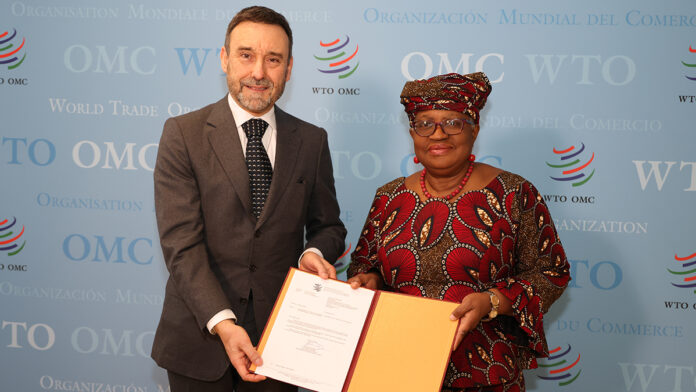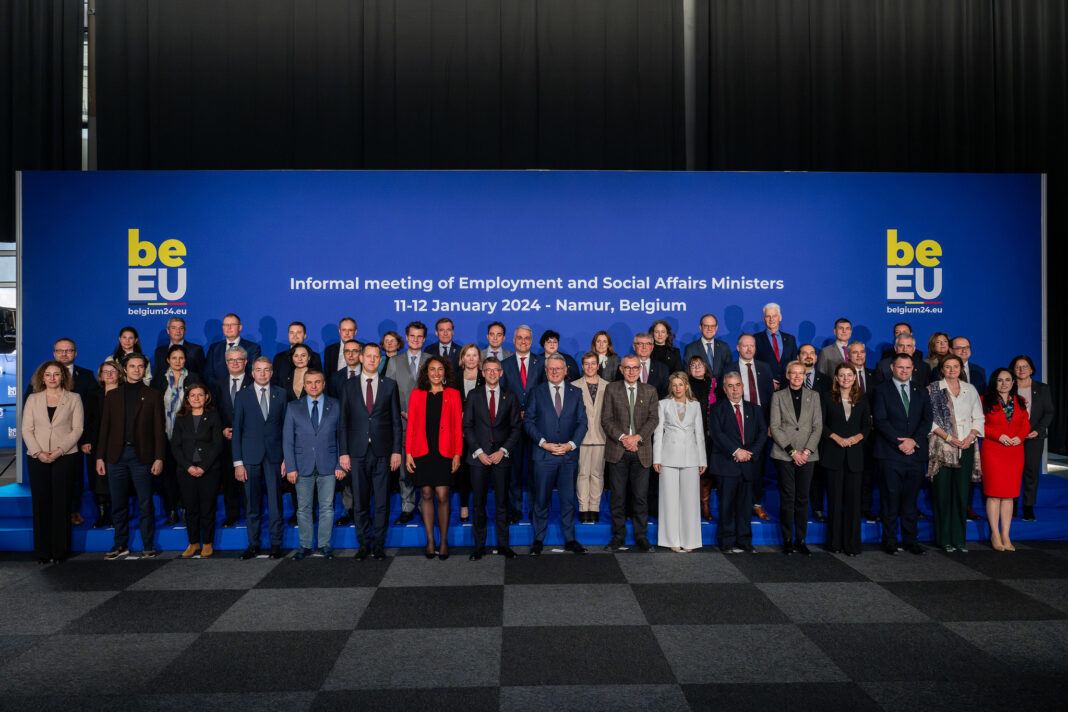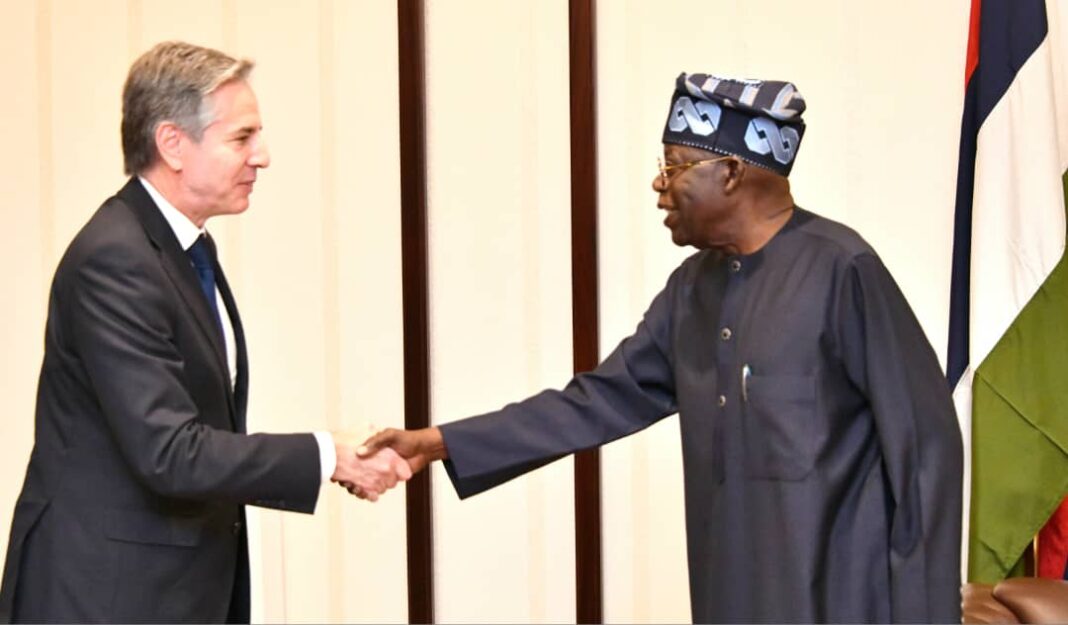Portugal is contributing EUR 50,000 (about CHF 48,000) to assist developing members and least— developed country (LDC) members in implementing the Agreement on Fisheries Subsidies. Ambassador Rui Macieira presented the contribution to WTO Director-General Ngozi Okonjo-Iweala on 24 January.
Director-General Okonjo-Iweala said: “I express my sincere gratitude to Portugal for its donation to the WTO Fisheries Funding Mechanism. Collaborative efforts to foster sustainable fisheries practices are critical for preserving marine resources and promoting the well-being of coastal communities worldwide, and Portugal’s contribution will help developing members advance these goals.”
Ambassador Macieira said: “Multilateral solutions for a sustainably managed ocean have been at the top of Portugal’s foreign policy agenda for many years. The Fisheries Subsidies Agreement reached in June 2022 at the 12th Ministerial Conference (MC12) is one of those solutions and an important one, prohibiting harmful fisheries subsidies. It is a real breakthrough: the first WTO agreement focused on the environment. Shortly after MC12, Portugal hosted the United Nations Ocean Conference which built upon that milestone. Our contribution to the Fish Fund is a public display of our commitment to meet the targets set in Sustainable Development Goal (SDG) 14 and support LDC members in implementing the Agreement. At MC13, in Abu Dhabi, we hope to reach the two-thirds ratification threshold for the Agreement to enter into force and to sign off on the second wave of these negotiations.”
The Agreement on Fisheries Subsidies will enter into force upon acceptance of its legal instrument by two-thirds of the membership. Half of the acceptances needed for the Agreement to come into effect have already been received. Because the new Agreement on Fisheries Subsidies will involve adjustments and enhancements to WTO members’ legislative and administrative frameworks, their transparency and notification obligations, and their fisheries management policies and practices, Article 7 of the Agreement provides for the creation of a voluntary funding mechanism to provide targeted technical assistance and capacity building to help developing and least developed country members with implementation.
The fund is operated by the WTO with partner organizations, namely the Food and Agriculture Organization (FAO) of the United Nations, the International Fund for Agricultural Development, and the World Bank Group, which bring to bear relevant expertise and allow the WTO to leverage its own expertise.





